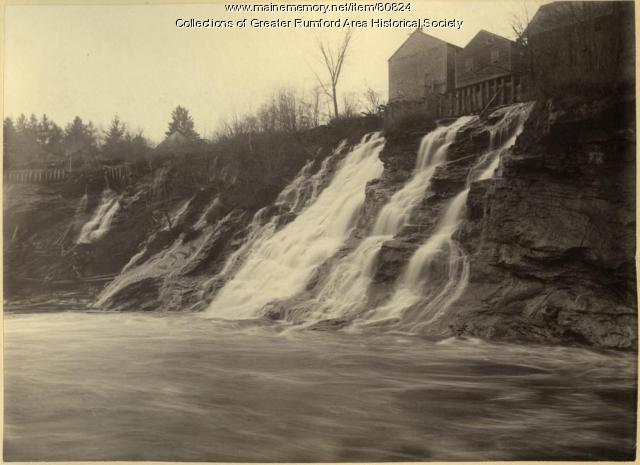Keywords: lumber piles
- Historical Items (45)
- Tax Records (0)
- Architecture & Landscape (0)
- Online Exhibits (7)
- Site Pages (9)
- My Maine Stories (2)
- Lesson Plans (0)
Site Pages
These sites were created for each contributing partner or as part of collaborative community projects through Maine Memory. Learn about collaborative projects on MMN.
Site Page
Lincoln, Maine - That Pioneer Spirit
"… building." The details also noted that the "huge piles of charred rubble [were] gone and plans to rebuild were underway.” Today a new photography…"
Site Page
Early Maine Photography - Landscape Photography - Page 2 of 2
"From a cost standpoint, circular sawed lumber made possible the large barns required by the emerging dairy industry in the post-Civil War period."
Site Page
Western Maine Foothills Region - Dixfield - Page 3 of 5
"… 12 yoke of oxen, with all the people they could pile on to it, and drove to Dixfield Village. Jonathan Waite was at the head of it when the cart…"
Site Page
Western Maine Foothills Region - Building Boom and Piers above the Falls
"… the dam sorted and large ones suitable for river piled on the bank ready to use if you decide to use them."
Site Page
Western Maine Foothills Region - Fires in Rumford
"The huge piles of pulpwood that were stored on the grounds of the International Paper Company and the Oxford Paper Company were constantly sprayed…"
Site Page
"… exploration & settlement at Winter Harbor Piles of logs along the Saco River, ca. 1910McArthur Public Library The earliest settlers lived…"
Site Page
Farmington: Franklin County's Shiretown - Railroad into the Village
"And still the work goes on. Nearly as fast as the piles are driven, they are capped, and the stringers and track timbers laid, in the direction of…"
Site Page
"… shell middens: areas where heaps of shells were piled with other refuse over the course of months and years."
Site Page
Surry by the Bay - Nineteenth Century
"… large scale: large farms and mowing fields, great piles of mussel-bed, with large barns and hay crops And...there were often three or four vessels…"









